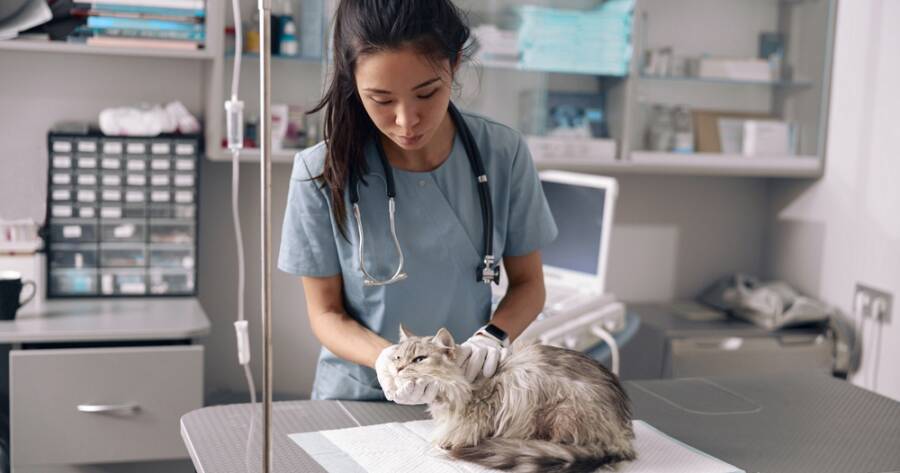Many pet owners wonder whether annual vet visits are truly necessary. When pets appear healthy, skipping a checkup might seem like an easy way to save money. However, preventive care can actually reduce long-term costs by catching health issues early. Understanding the benefits of routine veterinary visits can help pet owners make informed decisions about their pet’s well-being and finances.
Preventive Care vs. Emergency Treatment: The Cost Difference
Annual vet visits allow veterinarians to detect health problems before they become serious. Many conditions, such as dental disease, diabetes, or arthritis, develop gradually. Early detection means treatment can begin before symptoms worsen, reducing the risk of expensive emergency care. Regular vet visits can cost anywhere from $25 to $186.
Without routine checkups, unnoticed health issues can lead to costly treatments. For example, untreated dental infections may require tooth extractions or even surgery. Similarly, diseases like diabetes can be managed affordably when diagnosed early, but untreated cases may require hospitalization. These unexpected bills can range from $250 to $8,000. Investing in preventive care often saves pet owners from high medical bills in the future.
Vaccinations and Parasite Prevention: Essential for Long-Term Savings
Skipping vaccinations may seem like an easy way to cut costs, but it can lead to expensive consequences. Preventable diseases such as rabies, parvovirus, and feline leukemia can be life-threatening. Treating these illnesses is often far more costly than a simple vaccine.
Parasite prevention is another key reason to maintain annual vet visits. Fleas, ticks, and heartworms can cause severe health issues in pets. Once an infestation begins, treating it can be expensive and stressful. Regular preventive medications, prescribed by a veterinarian, help protect pets from these risks and reduce the likelihood of costly treatments.
Dental Health: Avoiding Costly Procedures
Many pet owners overlook dental care, but poor oral hygiene can lead to significant medical expenses. During an annual vet visit, a veterinarian examines a pet’s teeth and gums, looking for early signs of dental disease.
Pets with untreated dental issues often develop infections that spread to the kidneys, heart, or liver. Routine cleanings and dental checkups help prevent these complications. Although professional cleanings come with a cost, they are far less expensive than treating advanced dental infections or performing extractions.
The Role of Nutrition and Weight Management
Obesity is a growing problem for pets in the U.S., leading to conditions such as diabetes, joint pain, and heart disease. Annual vet visits provide an opportunity to assess a pet’s weight and discuss dietary needs.
Vets can recommend portion sizes, food types, and exercise routines that fit a pet’s lifestyle. Proper nutrition helps prevent costly health conditions, reducing the need for medications and treatments later in life. Investing in the right diet early on can lead to better long-term health and lower veterinary expenses.
How Routine Checkups Improve Quality of Life
Preventive vet visits do more than just save money—they improve a pet’s quality of life. Regular exams ensure pets remain active and comfortable as they age. Senior pets, in particular, benefit from early detection of arthritis, kidney disease, and other age-related conditions.
When pets receive routine care, they experience fewer illnesses and discomforts. This means fewer emergency trips to the vet, less pain, and a longer, happier life. While skipping vet visits may seem like a cost-saving decision, the long-term effects on a pet’s health and well-being are often not worth the risk.
Investing in Your Pet’s Future
Annual vet visits are an investment in a pet’s health and longevity. Preventive care helps detect health problems early, reducing the need for expensive emergency treatments. Vaccinations, parasite prevention, and proper nutrition all contribute to long-term savings and a better quality of life for pets.
While the upfront cost of a checkup may seem high, it often prevents larger expenses down the road. By prioritizing regular veterinary care, pet owners ensure their companions stay healthy, happy, and by their side for years to come.

